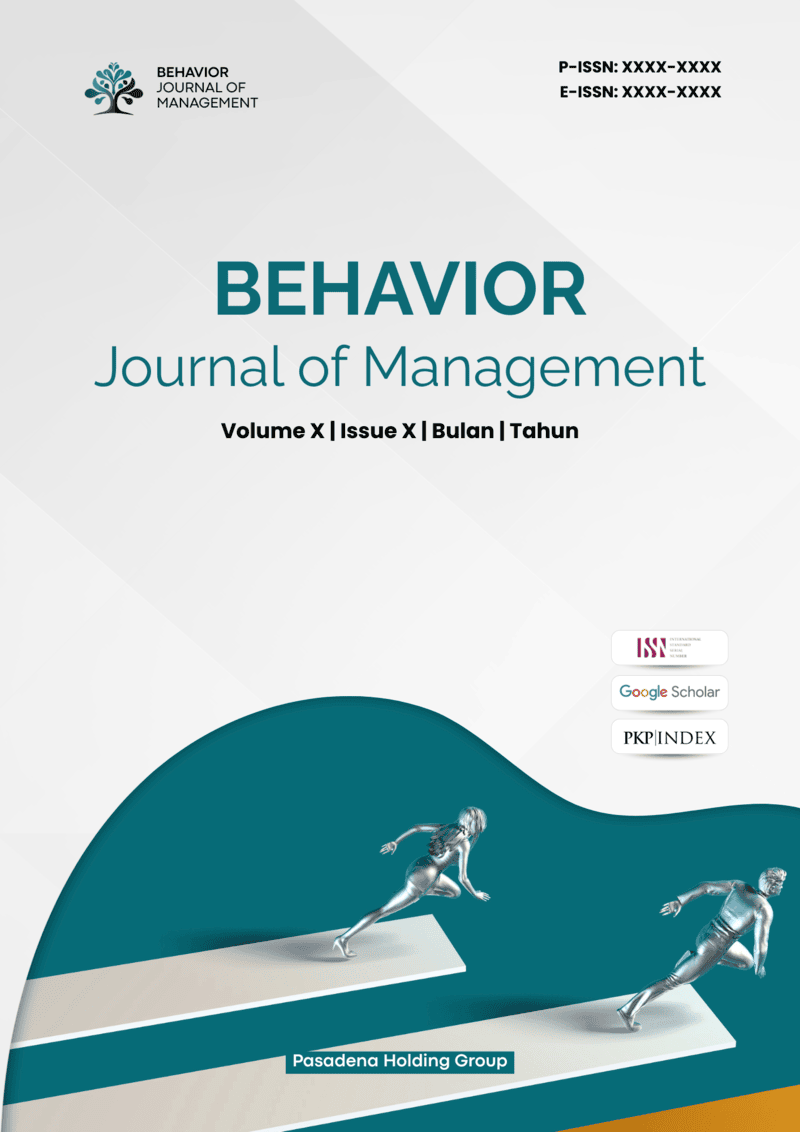TRANSFORMASI DIGITAL DAN DAMPAKNYA TERHADAP MODEL BISNIS: Peluang, Tantangan, dan Strategi Bagi UMKM dan Startup
Main Article Content
Abstract
This article examines the role of digital transformation and its impact on business models, with a particular focus on micro, small, and medium enterprises (MSMEs) and technology startups. The primary objective of this study is to identify key challenges and opportunities emerging during the digital technology adoption process and to provide recommendations for businesses and policymakers to support successful digital transformation. The method used is a qualitative literature review, analyzing scientific journals, books, reports, and case studies published in the last decade. A thematic synthesis approach was used to group the findings into key themes, such as digital infrastructure readiness, funding constraints, human resource capacity, and the adoption of innovative technologies such as e-commerce platforms, cloud-based accounting systems, and customer data analytics. The study results indicate that digital transformation can improve operational efficiency, reduce costs, accelerate decision-making, and open access to broader markets. However, MSMEs and startups still face barriers such as budget constraints, lack of digital skills, and uneven infrastructure. A comprehensive technology management strategy encompassing strategic planning, appropriate system integration, and ongoing employee training is key to maximizing the benefits of digitalization. In conclusion, digital transformation is not only related to the application of technology, but also requires changes in organizational culture, adjustments to business processes, and ecosystem support to encourage sustainable growth and increase competitiveness in the digital economy era.
Downloads
Article Details
Section

This work is licensed under a Creative Commons Attribution 4.0 International License.
References
Arisnawati, N. F. (2022). Kspps financing, product innovation, and technology as determinants of msme growth in pekalongan city. AL-FALAH: Journal of Islamic Economics, 7(2), 249-264.
Correani, A., De Massis, A., Frattini, F., Petruzzelli, A. M., & Natalicchio, A. (2020). Implementing a digital strategy: Learning from the experience of three digital transformation projects. California Management Review, 62(4), 37-56
Costa, A. C. F., Capelo Neto, F., Espuny, M., Rocha, A. B. T. D., & Oliveira, O. J. D. (2024). Digitalization of customer service in small and medium-sized enterprises: drivers for the development and improvement. International Journal of Entrepreneurial Behavior & Research, 30(2/3), 305-341.
Hendrawan, S. A., Chatra, A., Iman, N., Hidayatullah, S., & Suprayitno, D. (2024). Digital transformation in MSMEs: Challenges and opportunities in technology management. Jurnal Informasi dan Teknologi, 6(2), 141–149. https://jidt.org/jidt
Marpaung, S. F., Siregar, H. Z., Abdillah, F., Fadilla, H., & Manurung, M. A. P. (2023). Dampak transformasi digital terhadap inovasi model bisnis dalam start-up teknologi. Innovative: Journal of Social Science Research, 3(3), 6111–6122. https://j-innovative.org/index.php/Innovative
Mbama, C. I., & Ezepue, P. O. (2018). Digital banking, customer experience and bank financial performance: UK customers’ perceptions. International journal of bank marketing, 36(2), 230-255.
Rochmawati, Dwi Robiul, Hani Hatimatunnisani, and Mira Veranita. 2023. “Mengembangkan Strategi Bisnis Di Era Transformasi Digital.” 14(1): 101–8.
Setyoko, P. I. (2023). Impact of Digitalization for MSME Actors in the Era of Adapting New Habits. KnE Social Sciences, 56-65.
Sudiantini, Dian et al. 2023. “Transformasi Digital : Dampak , Tantangan , Dan Peluang Untuk Pertumbuhan Ekonomi Digital.” 1(3).

